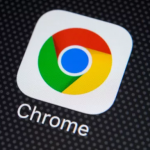In a galaxy very, very close to home – this exact one, in fact – Microsoft and Google are taking serious aim at each other’s respective user bases in the browser wars, with the latter introducing yet more adverts to try to persuade Edge fans to join the Chrome side (although Microsoft is equally guilty of being engaged in very similar tactics).
Google’s latest effort to promote Chrome at the expense of Microsoft Edge involves embedding an advert in Gmail security alert messages, which are sent when a new login has been made.
- How to get Chrome dark mode
- All the best Chromebooks of 2020
- Stay safer online with a Chrome VPN
In other words, if you sign in to your Google account on a new device, you get an email through to alert you of that activity, just to check that you have indeed logged in (and that it’s not someone else fraudulently accessing your account from their device).
When that sign-in comes from a Microsoft Edge user on Windows 10, Google has sneakily placed an advert in the email alert trying to persuade the user that they should be browsing with Chrome instead.
As spotted by Windows Latest, a Reddit user posted a grab of the ad, which says: “Make the most out of Windows 10 with the Chrome browser. Chrome is a fast, simple and secure browser, built for the modern web.”
This is not a new tactic from Google, which has previously pushed similar ads on Edge users via its various online services and products, including G Suite, Google Drive, YouTube and its search engine, among others.
One-big-advert-Drive
Microsoft is similarly guilty, as we saw earlier today, of this kind of aggressive and targeted promotional activity, most recently with adverts in OneDrive aiming to persuade Chrome (and Firefox) users to migrate over to the new Edge.
Previous to that, Microsoft has pushed Edge adverts via its Outlook.com webmail service, and ads have appeared in the search bar in Windows 10 as well as the Start menu (the latter aimed to persuade Firefox users to switch to Edge).
It’s a case of both being as bad as each other, really, when it comes to pestering users. But given how dominant Chrome is in the browser world, Microsoft could perhaps take this as a compliment. It’s Edge with all the ground to make up, after all – a huge gulf of it, in fact – and clearly Google perceives some threat and certainly isn’t resting on its web laurels.





